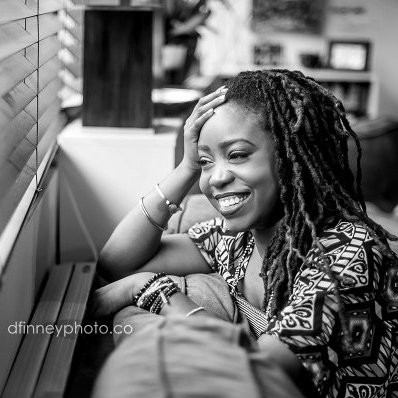
As conscious consumerism becomes more integrated into today’s economy, smart, ethical and forward-thinking companies are tasked with finding new ways to connect, educate and engage consumers. Consumers want to know where our products come from, and brands want to know how to communicate effectively without turning off customers.
TriplePundit sat down with Sandra Stumbaugh, VP of communications for Fair Trade USA, and Justin Dillon, CEO of Made in A Free World, to discuss the ways their companies work with brands to inspire, educate and inform their audiences about ethical purchasing.
1. Find creative ways to connect consumers with the places their products come from.
“We connect consumers to where their food and products come from through stories that we feature on social media and through digital campaigns,” explained Stumbaugh of Fair Trade USA.
The company recently launched a campaign called Fair Her, which celebrates the women farmers, makers and consumer advocates who contribute to the fair trade movement. The platform is used to share their stories in an effort to connect women producers and consumers around the world.
Connecting consumers to the places their products come from -- and the people who make them -- is also the premise of Slavery Footprint, a digital tool that educates consumers about forced labor in the supply chains of everyday products. Since its launch in 2011, millions of people from over 200 countries have visited the website to discover their connection to modern-day slavery.
“Many of today’s consumers have no idea what they’re buying or who they’re buying from,” said Dillon of Made in a Free World, the group behind Slavery Footprint. “We want to show them that they can make smarter choices. We want to influence every consumer transaction so that the buyer has the knowledge that they need to make purchases which reflect their values.”
2. Help consumers understand how to fit your product, brand or service into their everyday lives.
When asked why he thinks Slavery Footprint went viral so quickly, Dillon said a major contributing factor was the fact that the tool didn’t ask for anything of people other than for them to describe their everyday lives. “People like learning about themselves, how their lives connect to the bigger narrative. It gives them an invitation to be involved.”
The simple, interactive survey asks users questions about their location, lifestyle and everyday activities. From there, it calculates how many slaves "work" for users based on their responses. It’s meant to make consumers think more deeply about points of intervention throughout their daily lives. Now, the company works with brands to eradicated forced labor from their supply chains.
Fair Trade USA is constantly in search of new ways to help consumers understand how they can fit fair trade products into their everyday lives. From highlighting the Top 7 Fair Trade Drinks of the Summer to holiday gift guides, the company is all about finding fun, practical and meaningful ways consumers can embed fair trade products into the things they do everyday.
This October, the company will launch a new campaign called Fair Moments, which shows how consumers can live their values through fair trade products by presenting a series of everyday vignettes. The stories will then be shared throughout its social media channels.
3. Get verified.
Today’s consumers are looking more toward third-party verification, like B Corp certification and Fair Trade labeling, to determine how sustainable or ethical a product is. A recent survey conducted by Fair Trade USA showed that 59 percent of Americans are aware of Fair Trade Certified products.
This is a number that has almost doubled in the last three years, Stumbaugh explained. “The increase of awareness about Fair Trade products grows with consumer awareness of sustainability and ethical purchasing," she told us. "It’s becoming more a part of mainstream consciousness."
This growth is supported by new insights into consumer spending habits, particularly around the role of millennials in driving ethical purchases and an abundance of new fair trade products hitting store shelves: “They have a heightened curiosity about where products are coming from and strong desire to see third-party verification," Stumbaugh said. "More than 65 percent of millennials say they’re more likely to trust the brand when Fair Trade Certified.”
4. Be fun and easy to understand.
When it comes to interacting with consumers, Fair Trade USA generally takes a light, gentle approach, Stumbaugh told 3p. “We try to be uplifting and easy to understand. We talk about all the wonderful benefits. We don’t go too deep. We want them to feel good about buying our products.”
This is a tactic also used by many of the brands Fair Trade USA works with. For example, sustainable fashion brand PACT apparel recently unveiled a cheeky underwear ad promoting fair trade. It shows a risqué photo of a man wearing a pair of briefs and reads, “We’re taking fair trade to places it’s never been.”
And although it’s not always appropriate to be funny when talking about big and important issues like sustainability and ethical purchasing, it is always possible to be easy to understand. The question becomes, how can you communicate your values in the clearest most succinct way?
Patagonia does a great job at this. The company released a short video about the importance of fair trade products to educate its customers.
At the end of the day, it’s all about inspiring the customers to make better decisions. “As a company/organization, we don’t believe that we’re the heroes,” Dillon concluded. “With every video, website or product we develop, we’re here to serve the heroes -- which are the brands and the consumers.”
Image courtesy of Fair Trade USA (used with permission)

Joi M. Sears is the Founder and Creative Director of Free People International, a social enterprise which specializes in offering creative solutions to the world's biggest social, environmental and economic challenges through the arts, design thinking and social innovation.














